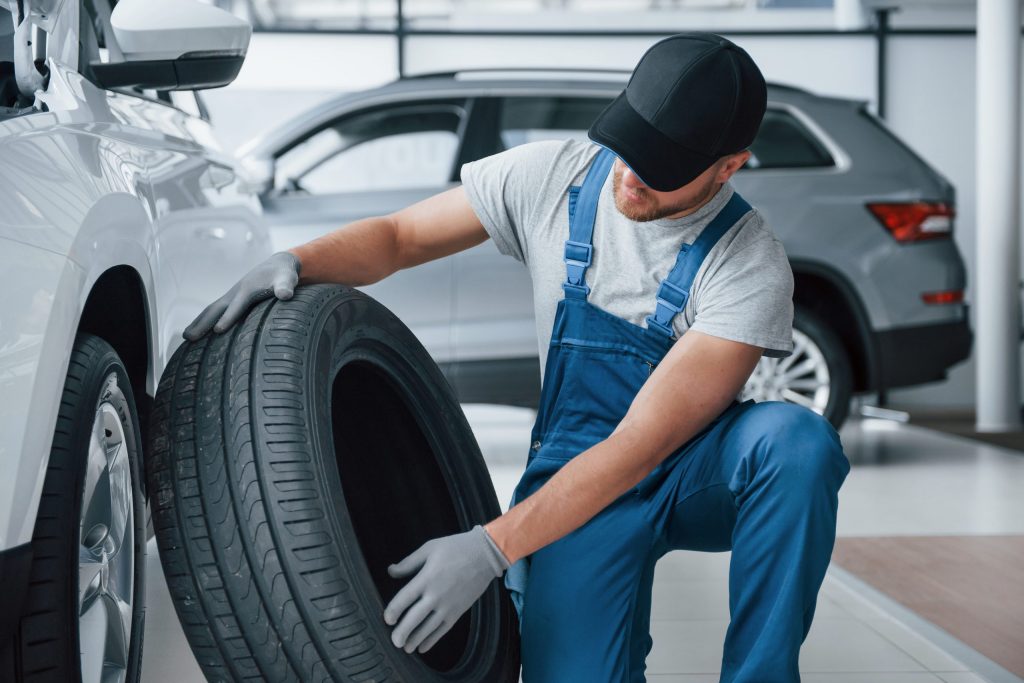How to Know if You Need New Tires (PDF)

No matter how cautiously you drive, tires tend to wear down over time. It’s important to have yours inspected by certified mechanics when you get your vehicle serviced or purchase a used one. Good tires ensure greater traction on the road, thus preventing any unexpected blowouts and reducing your risk of getting a ticket for operating an unsafe vehicle. Here are 5 signals that it might be time for new tires.
Tire Age
Despite its arbitrary nature, when compared to things you can see, such as tread wear, the age of your tires, could indicate they have reached the end of their useful life. Often, a tire’s warranty is based on the maximum age a tire can achieve while still providing optimal performance. The manufacturer of the car recommends changing tires every six years after the date of manufacture, while some tires can last up to ten years.
Sidewall Defects
Since they are in such a vulnerable part of the tire, sidewalls often get marks or defects from wear on city streets because they are cosmetic defects. If there is a bulging or area on the sidewall, the tire may not fit properly or could have been damaged by an impact. You should get it checked out, and you may need to purchase a new tire.
Tire Tread
To find out if your tires are so worn that they are no longer safe, many people use a simple trick. All you have to do is stick a penny head-first into several different tread grooves in each of your tires. If you can see Lincoln’s head, your treads are too shallow.
Weak Spaces, Bulges, and Blisters
If you see these kinds of defects on the outside of your tire, it means that part of the tire is becoming weak. Since it shows a structural weakness, you will not be able to repair or patch it. This kind of defect is particularly dangerous because it can lead to a blowout while driving.
Vibration
A vibrating car may be due to a variety of causes. First, make sure you notice it on different roads because rough pavement may be a problem. Your steering could cause your car to shake if it’s out of alignment, and issues with your body could cause a vibration. You might also need to replace one of your tires if it’s shaking.




